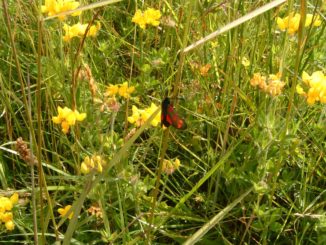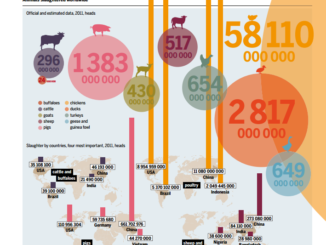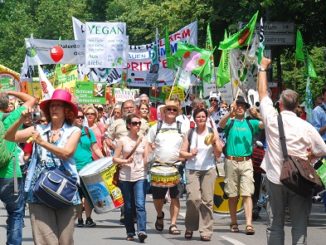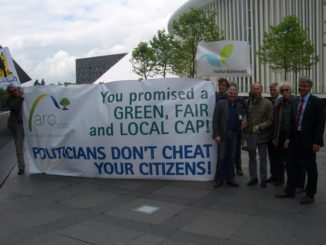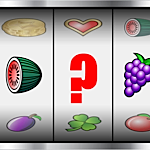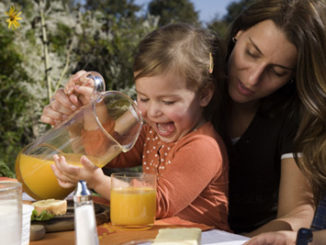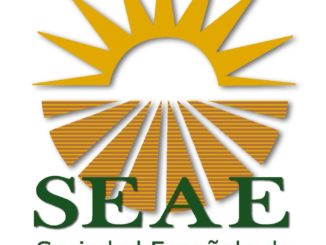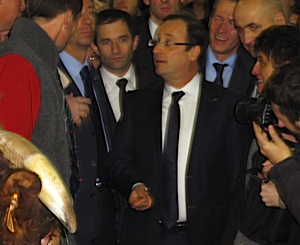
Briefing notes: TTIP
By Dr. Oliver Moore Communications Manager Arc20020 (major update June 2015; periodical updates since) In July 2013, the EU and U.S. started negotiations on a bilateral free trade and investment agreement, the Transatlantic Trade and Investment Partnership (TTIP). This potential deal is supposedly about simplifying the trade arrangements between the US and EU: it’s mooted to be about rooting out inefficiencies such as unnecessary double inspections and acknowledging similar standards where they exist. The idea is that it will increase trade between the two regions, improving the economy and generating employment along the way. Mainstream voices of politics and business support TTIP as a likely source of jobs and growth, without, they claim, impacting negatively on the EU’s higher health, environment, labour and other standards. Critics however, claim that this agreement could have a major negative impact on food, agriculture, environment and labour standards on both sides of the Atlantic. Video: What is the Transatlantic Trade Investment Partnership? By loading the video, you agree to YouTube’s privacy policy.Learn more Load video Always unblock YouTube As tariffs […]


